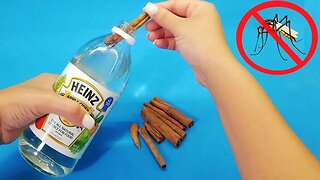Here's Why People Are Ditching Their Plastic Drinking Straws
Have you ever noticed how restaurants always give you a straw in your drink, whether or not you asked for one?
These small disposable tubes are a convenience that we have gotten used to over the years, but they have a great impact on the environment. It has been estimated that we use one straw every 4 minutes, and throw them away as soon as we’re done with them.
They’re not biodegradable, meaning that the earth’s micro organisms can’t recycle them naturally and they take 200 years to finally decompose.
Awareness was brought to this issue after marine biologists in Costa Rica filmed the suffering of a turtle as a plastic straw was being removed from it’s nose. Straws not only affect sea life, but also the birds that get their food from the ocean.
It has been estimated that 10 million tons of plastic end up in the ocean every year, and out of those 10 million, 100 thousand are disposable plastic straws. And if that wasn’t enough, it’s very hard to recycle straws. For you to have an idea, 500 thousand straws are used daily, in the USA alone.
The good news is that there are places in the world, such as Malibu, Seattle, Vancouver and even the United Kingdom that have banned the use of straws. Some businesses, such as Starbucks, have also promised to get rid of all plastic straws.
But it's not only the environment that suffers from use of straws. They can also have a negative impact on our health.
----------------------------------------
Facebook: https://bit.ly/38BWbw3
Pinterest: https://bit.ly/2Irvwa6
Disclaimer: The materials and the information contained on Natural Cures channel are provided for general and educational purposes only and do not constitute any legal, medical or other professional advice on any subject matter. These statements have not been evaluated by the FDA and are not intended to diagnose, treat or cure any disease. Always seek the advice of your physician or other qualified health provider prior to starting any new diet or treatment and with any questions you may have regarding a medical condition. If you have or suspect that you have a medical problem, promptly contact your health care provider.
-
 3:48
3:48
Natural Cures
7 months ago $0.37 earnedMix These Two Ingredients and Say Goodbye to Mosquitoes
1.53K -
 53:32
53:32
RealitySurvival
6 hours agoNational Prepper SITREP - SPACE COM Fights EMP Weapons - CBDCs & More!
15.4K15 -
 57:01
57:01
LFA TV
13 hours agoDr. Richard Fleming | THE HANNAH FAULKNER SHOW | 7.6.24 @4PM EST
36.7K69 -
 30:30
30:30
Stephen Gardner
8 hours ago🔴BREAKING: Trump Trashes Biden while welcoming Kamala Harris
48.7K231 -
 15:17
15:17
Scammer Payback
4 days agoScammer's Reaction after being Hacked
74.8K82 -
 1:26:11
1:26:11
Michael Franzese
1 day agoMichael Franzese LIVE! | Biden Cover Up and The Power of Second Chances | Ep. 10
59.7K137 -
 59:08
59:08
UFC - Ultimate Fighting Championship
3 days agoGeorges St-Pierre, Payton Talbott, UFC 303 recap | UFC Unfiltered
81.5K21 -
 2:12:05
2:12:05
Tactical Advisor
11 hours agoGun Giveaway Info & New Build Spotlight - Vault Room Live Stream - Vault Room Live Stream
66.5K29 -
 1:15:27
1:15:27
JoBlo Originals
1 day agoFriday Night Flicks!
74.2K11 -
 1:00:41
1:00:41
Trumpet Daily
1 day ago $6.79 earnedJoe Biden’s Demeanor Is ‘Not of This Earth’ - Trumpet Daily | July 5, 2024
93.6K104